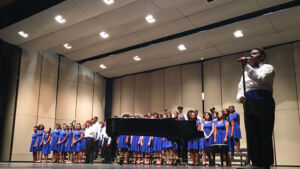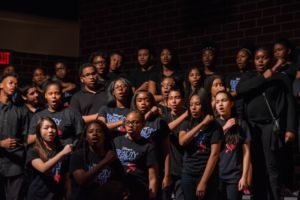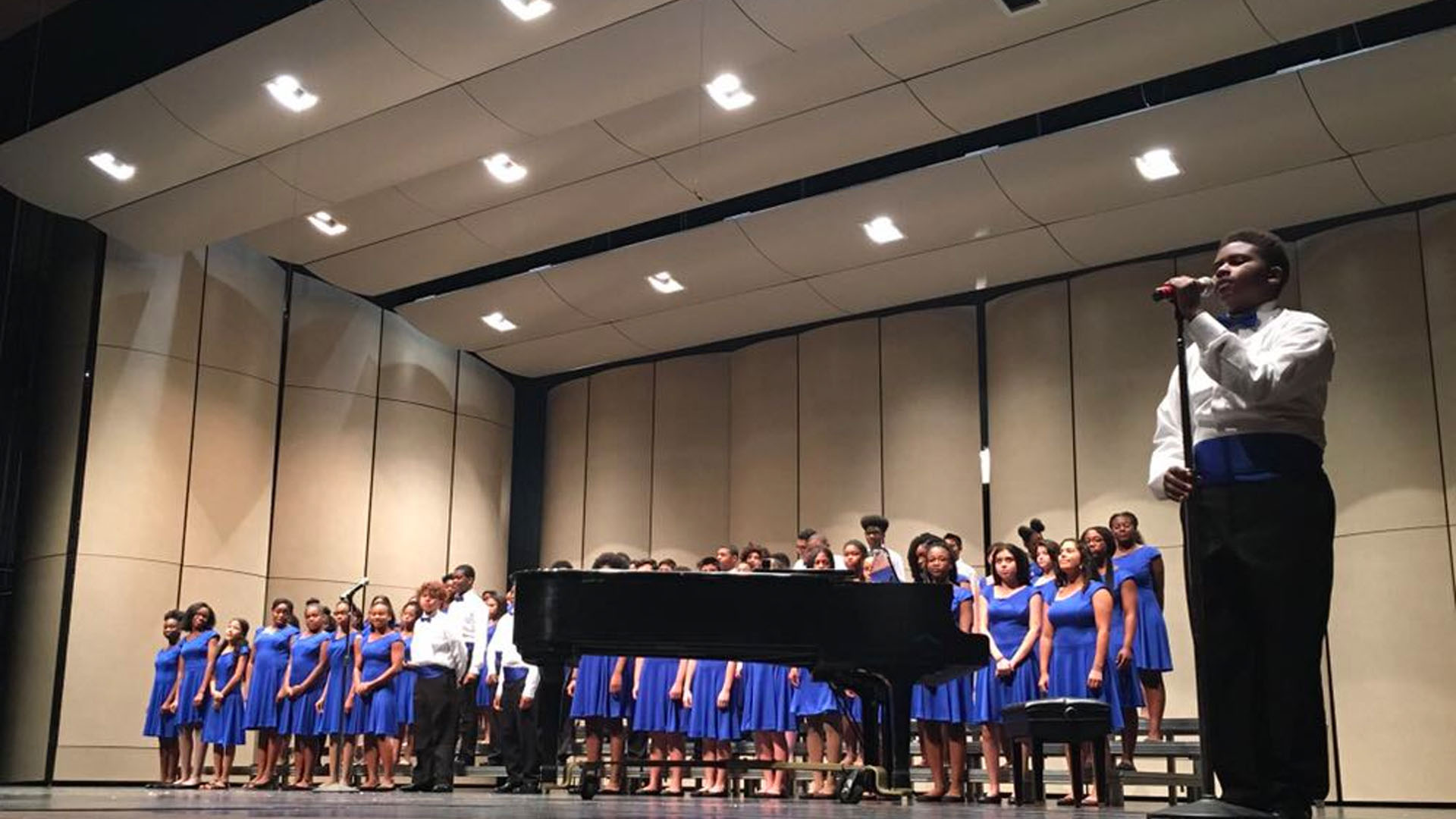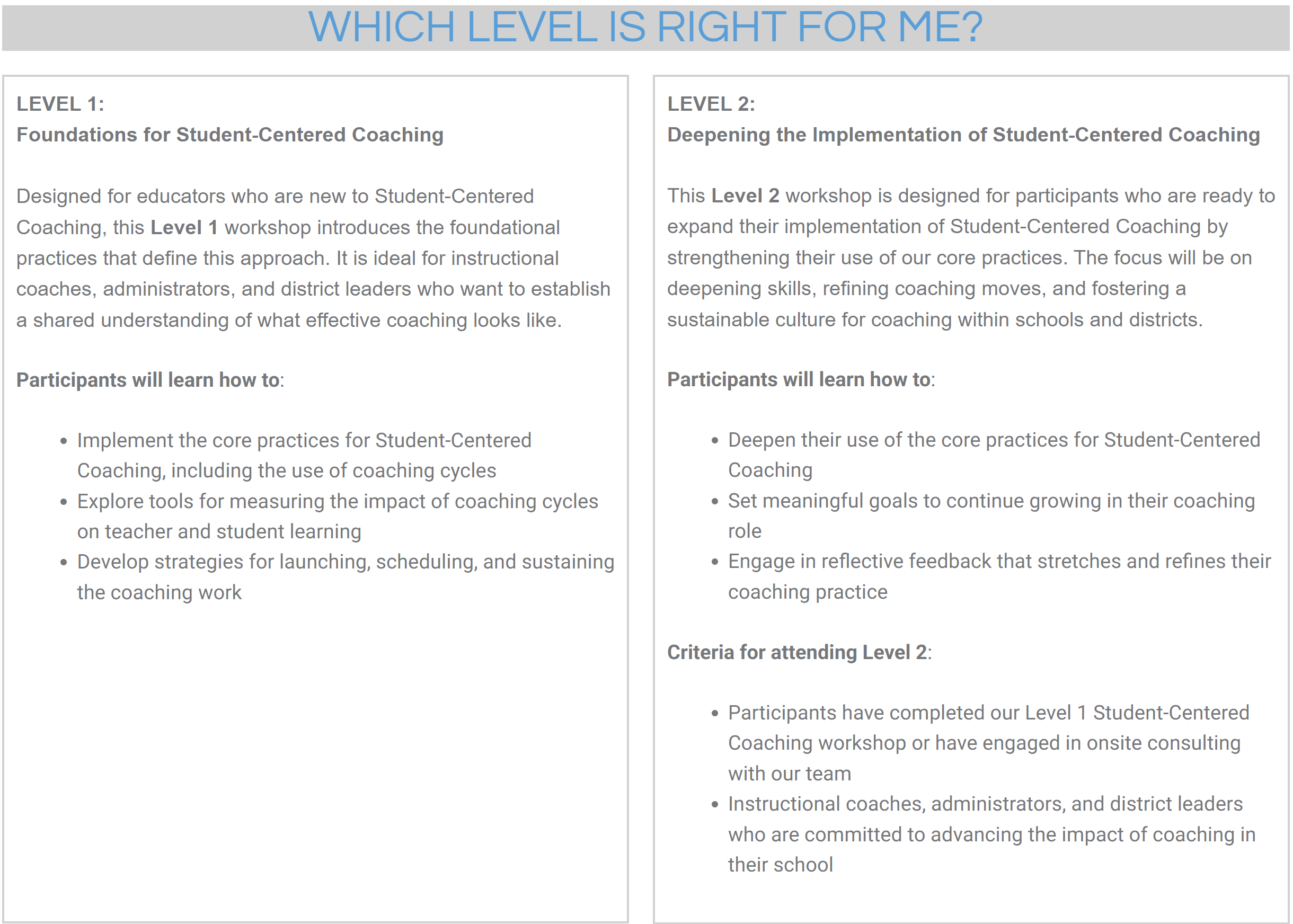 Some people say money talks, but in my experience as a music educator- money sings. I have written and received over a dozen grants and organized multiple fundraisers which have brought in over $30,000 for my program in the last eleven years. The money received from grants and fundraisers has provided my students with experiences they would not have had otherwise, such as musicals, professional performances, stage/lighting equipment, classroom technology, supplies and costumes, performance wear, and much more. The freedom that has come from raising our own funds has been transformational regarding what we are able to do within the program. However, I would be lying if I said it has not required a lot of time, energy, and effort. Having your own funding creates independence. It eliminates waiting or relying on someone else for the vision and goals you have for your program. While most school administrators place a high value on the arts – no one cares more about your music program than you and/or your students. If you have big dreams- you have to be willing to put in the work. I once had a teacher from a different school district reach out via email to ask how I was able to sustain my choir program. They wanted to compare local schools and lobby for more funding from their administration. This teacher complained the money given to them each year was not enough to cover the cost of any new music, let alone anything else they might want to provide for their students. I agreed with them over the fact that $150 each year was not nearly enough to purchase new music for a choir program with over 150 students. However, I cautioned them on presenting a list of comparisons and complaints to their administrators to acquire the funds they needed. Instead, I suggested they attempt a fundraiser first.
Some people say money talks, but in my experience as a music educator- money sings. I have written and received over a dozen grants and organized multiple fundraisers which have brought in over $30,000 for my program in the last eleven years. The money received from grants and fundraisers has provided my students with experiences they would not have had otherwise, such as musicals, professional performances, stage/lighting equipment, classroom technology, supplies and costumes, performance wear, and much more. The freedom that has come from raising our own funds has been transformational regarding what we are able to do within the program. However, I would be lying if I said it has not required a lot of time, energy, and effort. Having your own funding creates independence. It eliminates waiting or relying on someone else for the vision and goals you have for your program. While most school administrators place a high value on the arts – no one cares more about your music program than you and/or your students. If you have big dreams- you have to be willing to put in the work. I once had a teacher from a different school district reach out via email to ask how I was able to sustain my choir program. They wanted to compare local schools and lobby for more funding from their administration. This teacher complained the money given to them each year was not enough to cover the cost of any new music, let alone anything else they might want to provide for their students. I agreed with them over the fact that $150 each year was not nearly enough to purchase new music for a choir program with over 150 students. However, I cautioned them on presenting a list of comparisons and complaints to their administrators to acquire the funds they needed. Instead, I suggested they attempt a fundraiser first.
The freedom that has come from raising our own funds has been transformational regarding what we are able to do within the program.
Fundraising could have been beneficial to this teacher in a variety of ways. For starters, it could have provided their students with new music, materials, or opportunities quicker than it would have taken for a school board to approve additional funding from a presentation. There are often long chains of command and protocols to meet before changes to budget take action. It also would have shown their administrators the good which can come from acquiring more funding for the program and that they were willing to put effort forth on their own part. I have found in grant writing that if I demonstrate I am able to bring something to the table (raising a portion or half of the funds needed), I am more likely to receive the grant.  The results from a fundraiser could have given this teacher more of a leg to stand on when presenting their request to the administration. However, the idea of a fundraiser was dismissed, and they stated they would perhaps try it if their request for more funding was denied. This was disappointing to me because I truly believe this teacher could have raised more than what they needed and helped their cause if they had only given fundraising a chance. Fundraisers are tricky. They have to be done well to be effective, and it is up to you as the teacher to identify a reputable one which will give you the most money for your efforts. There are many programs out there, and choosing the right one is important. It is also important to limit the amount of fundraising done each year. For example, our performing arts department does one fundraiser each year in February. It is the only time we do a fundraiser, and it is with the same company we have used for the last 9 years. By only doing this one fundraiser with a solid reputation- our students, staff, and community have come to anticipate it, and the efforts and participation tend to be high. Too many fundraisers will lead to burn out and low effort, and it can also be a major turn-off for students and their families. Sometimes fundraisers are not a possibility. For example, in planning out the 2020-2021 school year, I had hesitation in doing a fundraiser due COVID 19. I felt it was highly inappropriate to ask families to try to sell cheesecakes and cookie dough for our choir department when many had experienced loss and hardship as a result of the pandemic. It just did not feel right. As a result, we did not do fundraising for this particular year. However, just because we did not do a fundraiser does not mean we did not need additional funding. I researched available grants to take its place and then filled out an application for the grant I felt would best meet our needs. That grant ended up covering the cost of new music and online activities and resources for my students for the year. Grant writing is another way of bringing in additional funding for your program, and it is typically a straightforward process. I have learned several lessons or hacks when writing grants that might be helpful.
The results from a fundraiser could have given this teacher more of a leg to stand on when presenting their request to the administration. However, the idea of a fundraiser was dismissed, and they stated they would perhaps try it if their request for more funding was denied. This was disappointing to me because I truly believe this teacher could have raised more than what they needed and helped their cause if they had only given fundraising a chance. Fundraisers are tricky. They have to be done well to be effective, and it is up to you as the teacher to identify a reputable one which will give you the most money for your efforts. There are many programs out there, and choosing the right one is important. It is also important to limit the amount of fundraising done each year. For example, our performing arts department does one fundraiser each year in February. It is the only time we do a fundraiser, and it is with the same company we have used for the last 9 years. By only doing this one fundraiser with a solid reputation- our students, staff, and community have come to anticipate it, and the efforts and participation tend to be high. Too many fundraisers will lead to burn out and low effort, and it can also be a major turn-off for students and their families. Sometimes fundraisers are not a possibility. For example, in planning out the 2020-2021 school year, I had hesitation in doing a fundraiser due COVID 19. I felt it was highly inappropriate to ask families to try to sell cheesecakes and cookie dough for our choir department when many had experienced loss and hardship as a result of the pandemic. It just did not feel right. As a result, we did not do fundraising for this particular year. However, just because we did not do a fundraiser does not mean we did not need additional funding. I researched available grants to take its place and then filled out an application for the grant I felt would best meet our needs. That grant ended up covering the cost of new music and online activities and resources for my students for the year. Grant writing is another way of bringing in additional funding for your program, and it is typically a straightforward process. I have learned several lessons or hacks when writing grants that might be helpful.
- Read the description of the grant carefully.
- Follow all directions. If the grant says no more than 200 words- do not submit a grant with 205 words. There is a chance your submission might get thrown out before it is even read just due to the fact that instructions were not followed.
- Stick to the topic of the grant and answer all questions thoroughly. If the grant asks you to provide an explanation of what you would like to use the money for- give a clear and concise explanation of exactly what the money would be used for, and do not deviate into why you decided to write the grant and all of the complaints you might have for a lack of funding. Stay right on topic and only give reasoning and background information if it is asked for.
- Be honest about how and when the money will be used.
- Thank the people reading your grant submission.
- Ask someone to proofread your application and follow your school’s chain of command if needed or applicable.
 The effort put into grant writing and fundraising is worth the rewards of being able to have artistic freedom and access to resources. If we need to purchase costumes and props- we are able to do so. If we need to order new music or folders- it is not left to the discretion of anyone else whether or not it gets purchased. That freedom is invaluable because it provides me with tools to ensure my students have the best experience possible in our choir program. No student wants to sing with a folder which is falling apart or music that is missing pages. Until I wrote a grant for a new keyboard, I was teaching with a piano that was a whole step flat and had two keys right around Middle C that were permanently stuck. Additionally, every time I tried to move it, the wheels would fall off. Grant writing and fundraising changed my situation for the better, and I have confidence they could do the same for you. Please feel free to reach out via email with any follow-up questions or comments.
The effort put into grant writing and fundraising is worth the rewards of being able to have artistic freedom and access to resources. If we need to purchase costumes and props- we are able to do so. If we need to order new music or folders- it is not left to the discretion of anyone else whether or not it gets purchased. That freedom is invaluable because it provides me with tools to ensure my students have the best experience possible in our choir program. No student wants to sing with a folder which is falling apart or music that is missing pages. Until I wrote a grant for a new keyboard, I was teaching with a piano that was a whole step flat and had two keys right around Middle C that were permanently stuck. Additionally, every time I tried to move it, the wheels would fall off. Grant writing and fundraising changed my situation for the better, and I have confidence they could do the same for you. Please feel free to reach out via email with any follow-up questions or comments.
Resources
Please login or register to claim PGPs.
Alternatively, you may use the PGP Request Form if you prefer to not register an account.




